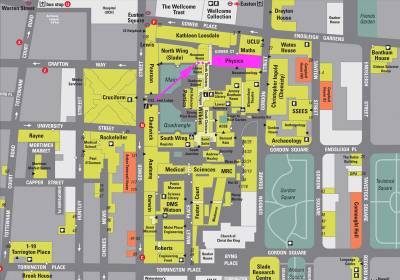HOME | Members | Research | PUBLICATIONS | Links |
Modelling dynamics of polaron formation in oxides
Please note that owing to funding restrictions beyond the supervisors’ control, this PhD studentship is open to British citizenships or EU citizens with UK (pre-)settled status only.
Non-radiative dissipation of excess electronic energy is a ubiquitous phenomenon in nature. It contributes to a wide variety of processes in biological and technological systems from vision to classical computing and optoelectronic devices, from photo-electro-catalysis to radiation damage, from antibacterial action and DNA damage to laser-driven nuclear fusion. Hence, developing a better understanding of these processes is of crucial importance. However, ab-initio modelling of such phenomena is a challenging problem due to the dynamics spanning several time- and energy- scales.
This 4-year project is a mix of method development, software development, and practical simulations of realistic systems. It aims: 1) to perform real-time Time-Dependent Density Functional Theory (RT-TDDFT) simulations coupled to Ehrenfest molecular dynamics to develop an understanding of the ultra-fast electron dynamics of polaron formation in oxides, 2) quantify the accuracy, thence viability, of Physics-Informed Neural Networks (PINNs) for Partial Differential Equations (PDEs) as computationally cheaper alternative to RT-TDDFT towards larger-scale, longer-time simulations, and 3) implement more sophisticated molecular dynamics methods, such as Tully surface hopping (TSH), to study polaron formation in more detail.
This studentship is co-funded by the Ada Lovelace Centre (ALC) and University College London (UCL) and brings together expertise in modelling defects, oxides, and polarons at UCL with expertise in real-time dynamics, spectroscopy, and machine learning at SCD-STFC. The ALC provides scientific computing support to the Science and Technology Facilities Council (STFC) central facilities and related departments – Diamond Light Source, ISIS Neutron and Muon Source, the Central Laser Facility, the STFC Scientific Computing Department (SCD), and the Rosalind Franklin Institute.
The balance of training activities will be tailored to the selected student’s skills, inclinations, and long-term career ambitions. At UCL the PhD training and research will be carried out in the group of Prof. Alexander Shluger in the Department of Physics and Astronomy and within the vibrant environment of the London Thomas Young Centre. The group is one of the world leaders in computational modelling of defects in insulators and heterostructures underpinning the performance and reliability of electronic devices.
The student must spend at least one year of the project time at a STFC site (Rutherford Appleton or Daresbury Laboratory), in a schedule to be arranged by mutual agreement between the ALC and UCL supervisors together with the selected candidate. Research activities at the SCD-STFC will be carried out within the Theoretical and Computational Physics Group (TCPG). The TCPG is an international, family friendly, diverse group who have played a significant role in many ground-breaking UK code development projects including CASTEP, CRYSTAL, ONETEP, Wannier90, and QUESTAAL. Upon completion of the PhD and pending a separate open SCD-STFC screening-process, the selected candidate, who will have demonstrated the development of substantial theory and software skills, will be considered for permanent employment at SCD-STFC.
We are looking for a highly motivated candidate with a top-level MSci degree or equivalent in Chemistry, Physics, or Materials. Undergraduate knowledge of Quantum Physics/Chemistry and Solid State Physics/Chemistry is essential. You should enjoy coding and be keen to push the boundaries of machine learning and artificial intelligence in state of the art first principles materials modelling. Applications should be made to UCL as soon as possible but no later than 1 April 2024 with an expected start date in September/October 2024. The award will cover fees and an annual stipend at the EPSRC-DTP rate.
Informal enquiries should be addressed to Prof. Alexander Shluger (a.shluger@ucl.ac.uk), Dr. Peter Elliott (peter.elliott@stfc.ac.uk), and Dr. Paolo Trevisanutto (paolo.trevisanutto@stfc.ac.uk).
 Close
Close





